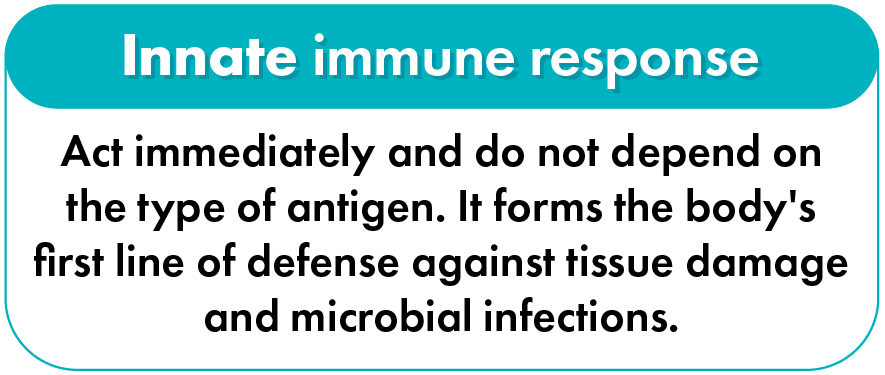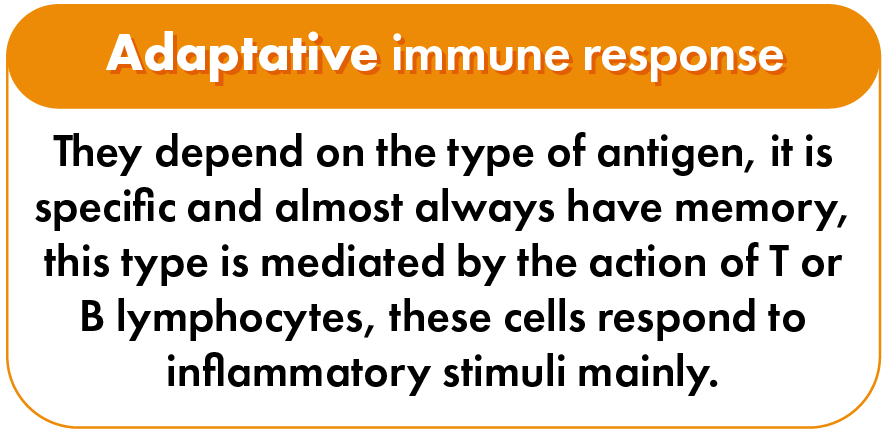
By Dr. Jorge Vargas
What is the immune system? The immune system is responsible for providing protection to the different cells and systems of the body and is able to distinguish between itself and any intruder whether they are bacteria, fungi, viruses or foreign substances called antigens.
Types of immune response
How the immune system works?
Both types of immune response require a network of signaling molecules called cytokines, these are proteins that participate in the activity and regulation of the immune response. The innate immune system responds in the same way to different infectious stimuli and has limited specificity, and may not completely distinguish between different microorganisms. The adaptive immune system, through its T- and B-lymphocyte effector cells, has two types of response, cellular immunity and humoral immunity. Cellular immunity is mediated by T lymphocytes that are intended to remove infected cells and remove reservoirs of infection, while humoral immunity is mediated by B lymphocytes and are intended to block infections and eliminate extracellular microorganisms.

Immune system as a risk factor
Although the immune system is responsible for protecting and maintaining homeostasis in infection or inflammation processes, it may be a risk factor in the development of diseases. The immune system is so complex that it tries to compensate all systems however this compensation will often not completely meet the cellular demands and it is here that it is gradually generating an oxidative damage that favors the formation of free radicals oxygen that damages the cell and favors or contributes to the development of chronic diseases.

Cevilat in the immune system
Cevilat is a conjugate of compounds, which contribute to the immune defense of the body supporting various cellular functions of the innate and adaptive immune system. Active components of Cevilat are:

These four elements act actively in different cellular processes that are carried out in the different systems of the body, mainly in the immune system. Cevilat® promotes cell signaling, regulates the production of pro-inflammatory cytokines, prevents the formation of reactive oxygen species and promotes oxidation, stimulates the production of t and b lymphocytes.




